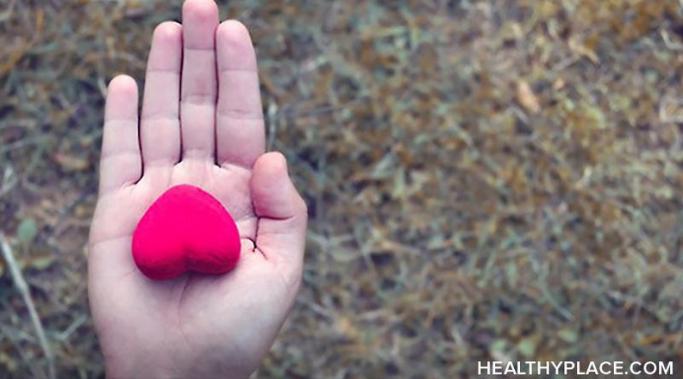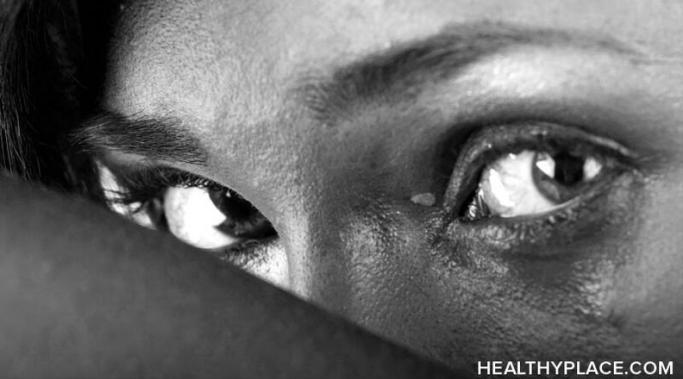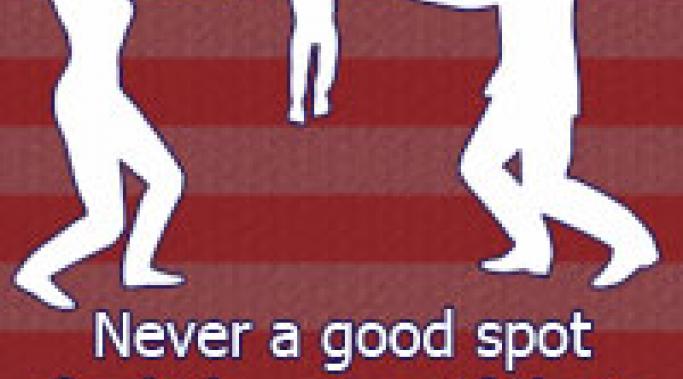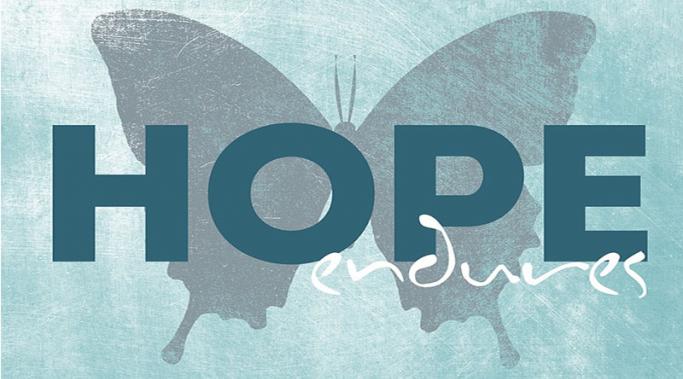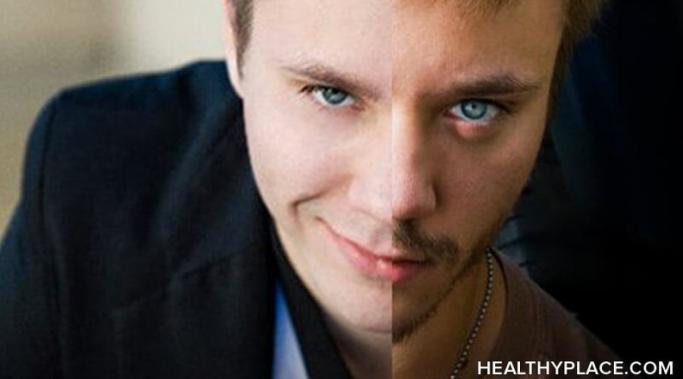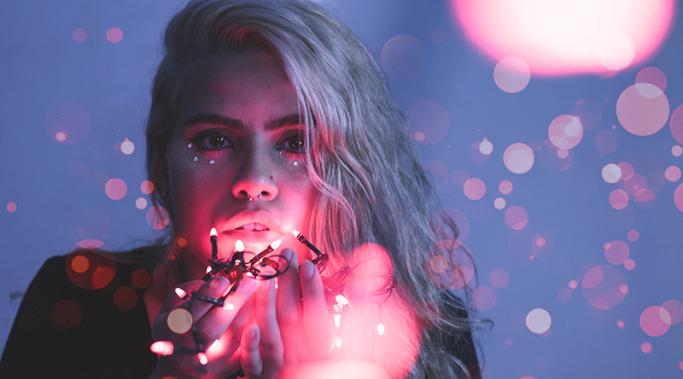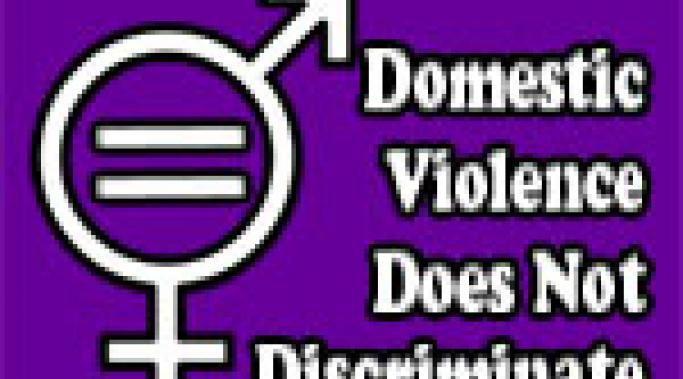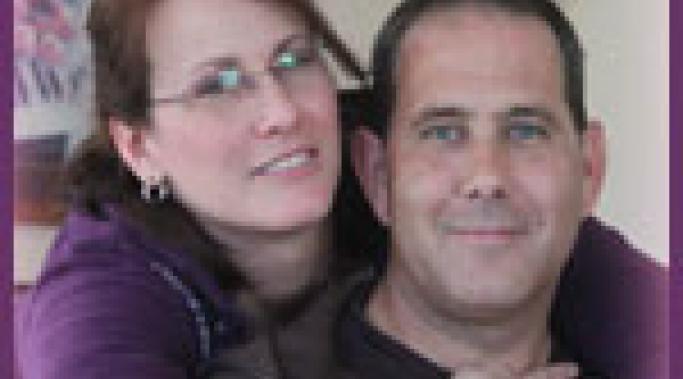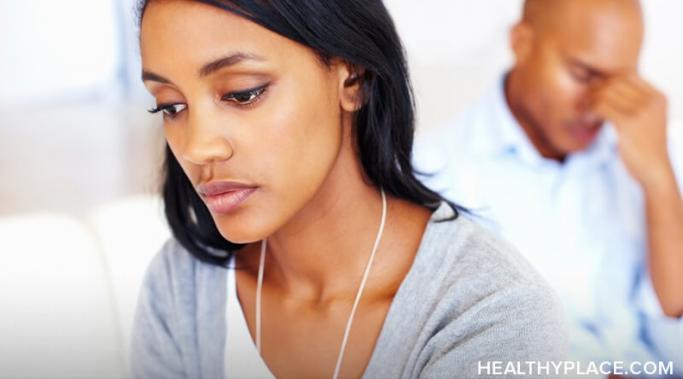Unconditional love can't make an abuser change. In an abusive relationship, unconditional love sets the stage for more abuse. Even so, many abuse victims believe that unconditional love must make the abuser stop abusing. Nothing is stronger than love, right? Victims think things like:
"But I love her (so I stay)."
"He had a horrible childhood (so I stay)."
"She never learned how to love (so I stay)."
"I want to show her that someone in her effing life cares (so I stay)."
"He is really sick and has no one else but me (so I stay)."
Unfortunately, unconditional love has a razor sharp edge that will make you bleed. It could even kill you. Nothing is stronger than love. So wasting your empathy on an abuser by affording him or her with unconditional love can be your death sentence.
Leaving Abuse
First I need to clarify something. There are no domestic abuse victims reading this post. I know that because if you are an abuse victim, you're online researching troubled relationships and self-help information aimed at fixing a frazzled marriage. You certainly are not searching for information about any "abuse victim". In my mind, abuse victims do not know they are abuse victims. Abuse victims truly do not recognize the abuse as abuse.
If you know and admit that you're in an abusive relationship, then you are no longer a victim. You are a survivor of domestic abuse. Only survivors read this blog, pure and simple. That said, you may wonder why I am writing an article for an abuse victim who will never read it. Because I want to remind you, the survivor, just how far you've come in your efforts to end abuse in your life.
It seems that the courts would have more sense when it comes to co-parenting with any abuser, but especially a proven-in-a-court-of-law abuser found guilty of domestic violence, child abuse, or any sexual crimes. There is a disconnect between criminal court and family court that endangers our children with the mistaken belief that two parents, of any sort, is preferable to protecting our children from dangerous people.
And yet, many of us find ourselves co-parenting with our abusers.
Quotes on abuse from domestic violence survivors about the abuse and leaving their abusers show us their courage and insight. But perhaps more importantly, quotes on abuse give a glimpse of the future to survivors who have not left their abusive partners. I hope you catch a realistic version of your future without your abuser within these quotes on abuse (Insightful Quotes on Abuse Issues). It isn't easy, but that new start is worth the pain of leaving.
I struggle with using the words "narcissist" and "sociopath" and the like in my descriptions of abusers. The words get a lot of online attention and would draw in abuse victims trying to solve the mystery of their lover's nasty behaviors. However, "abusers" do not fall into any specific category in the DSM-IV (the guide psychiatrists use to diagnose mental illnesses). By and large, abusive people are not mentally ill - even though to us normal folks, it sure appears that they are insane.
Due to some of the comments this post received, I want to clarify that I am talking about cases of domestic violence and abuse - two adults who chose to be together initially until one found out the other was abusing them. There is some peace in "diagnosing" your abuser as a sociopath, narcissist, or whatever as a layperson because your research will also show you these people DO NOT CHANGE and IT ISN'T YOUR FAULT they behave the way they do. This helps you to detach from them.
However, if you are a victim of abuse in a domestically violent relationship, then it does no good to wait around out of "loyalty" or "marriage vows" or any other reason if your abuser happens to actually go to a therapist and receive such a diagnosis. You will become disordered if you live with someone with a mental disorder that science has no way to treat or cure.
Are you having problems making friends since leaving your abusive relationship? You aren't alone in being alone. Abuse survivors make it out of their abusive relationships often to find they have no friends, or at least no one they can trust to be a friend. And after so much time in an abusive relationship, the effects of the emotional abuse can leaving you feeling like you're not worthy of a friend. Despite the problems, you can make good friends after an abusive relationship and create a life you want to live.
Part 1: The Abusive Relationship and Its Fairy-tale Beginning
Part 2: The Hidden Tale of Abuse
Part 3 of Our Fairy-tale:
Previously, we left our princess and her friends confused and our knight deeply satisfied with himself. This is exactly as our knight wants it to be! He overpowered the princess and made her his newest trophy. From the outside looking in, it appears that the brave knight lives a dream: beautiful wife, beautiful home, loyal servants as friends, and the ability to take on new adventures (and lovers) without so much as a sideways glance from his wife. Our knight won his battle. He retains his glorious reputation, and that is all that matters to him.
When it comes to the statistics about domestic abuse, it doesn't matter to me how many men to how many women experience domestic violence. Domestic violence is a power issue more than a gender issue. Intimate Partner Violence affects men and women, and I really do not care in what proportion.
Domestic violence will not end until
no person seeks power over another person, or
every person learns to recognize the tactics of control and manipulation early in a relationship so they can make the decision to get out before the abuser hurts them (more).
I do not see the day when no person seeks power over another. I believe the majority of people want and work for equitable relationships, but I also believe there will always be those who do not. I think the desire for power over another person is a temptation all of us battle with at times. Some of us win that battle, and some of us lose ourselves in it.
I am struggling in my relationship with Max. He requests more attention from me, and I know his request is rational. Truth is that I find it difficult to connect with him in an intimate way on a regular basis. It seems that "everything else" gets my attention and focus, while I place Max's needs on the back burner.
Violet is ready to leave her abusive husband - almost. She struggles with what-ifs, but I sense she has one foot out the door already. She asked in her comment,
"I think about him meeting someone else; what if he is good to her? Does that make her better than me? I know someone else addressed this, but it is a real fear of mine. Am I making him act this way?"
